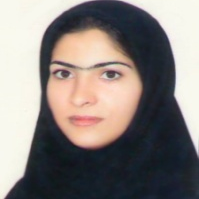
Mojdeh Piran
Work place: Industrial Electrical and Electronic Engineering SanatkadeheSabze Pasargad. CO (S.S.P. Co), Shiraz, Iran
E-mail: SSP.ROBOTIC@yahoo.com
Website:
Research Interests: Computer systems and computational processes, Artificial Intelligence, Data Structures and Algorithms
Biography
Mojdeh Piran is an industrial management researcher of research and development company SSP. Co. She is now pursuing her Master in industrial management. She is an expert Industrial and Quality Management in this company. Her research activities deal with the IC engine control, artificial intelligence and expert system.
Author Articles
Quality Model and Artificial Intelligence Base Fuel Ratio Management with Applications to Automotive Engine
By Mojdeh Piran Farzin Piltan Mehdi Akbari Mansour Bazregar
DOI: https://doi.org/10.5815/ijisa.2014.02.10, Pub. Date: 8 Jan. 2014
In this research, manage the Internal Combustion (IC) engine modeling and a multi-input-multi-output artificial intelligence baseline chattering free sliding mode methodology scheme is developed with guaranteed stability to simultaneously control fuel ratios to desired levels under various air flow disturbances by regulating the mass flow rates of engine PFI and DI injection systems. Modeling of an entire IC engine is a very important and complicated process because engines are nonlinear, multi inputs-multi outputs and time variant. One purpose of accurate modeling is to save development costs of real engines and minimizing the risks of damaging an engine when validating controller designs. Nevertheless, developing a small model, for specific controller design purposes, can be done and then validated on a larger, more complicated model. Analytical dynamic nonlinear modeling of internal combustion engine is carried out using elegant Euler-Lagrange method compromising accuracy and complexity. A baseline estimator with varying parameter gain is designed with guaranteed stability to allow implementation of the proposed state feedback sliding mode methodology into a MATLAB simulation environment, where the sliding mode strategy is implemented into a model engine control module (“software”). To estimate the dynamic model of IC engine fuzzy inference engine is applied to baseline sliding mode methodology. The fuzzy inference baseline sliding methodology performance was compared with a well-tuned baseline multi-loop PID controller through MATLAB simulations and showed improvements, where MATLAB simulations were conducted to validate the feasibility of utilizing the developed controller and state estimator for automotive engines. The proposed tracking method is designed to optimally track the desired FR by minimizing the error between the trapped in-cylinder mass and the product of the desired FR and fuel mass over a given time interval.
[...] Read more.Management of Automotive Engine Based on Stable Fuzzy Technique with Parallel Sliding Mode Optimization
By Mansour Bazregar Farzin Piltan Mehdi Akbari Mojdeh Piran
DOI: https://doi.org/10.5815/ijitcs.2014.01.12, Pub. Date: 8 Dec. 2013
Both fuzzy logic and sliding mode can compensate the steady-state error of proportional-derivative (PD) method. This paper presents parallel sliding mode optimization for fuzzy PD management. The asymptotic stability of fuzzy PD management with first-order sliding mode optimization in the parallel structure is proven. For the parallel structure, the finite time convergence with a super-twisting second-order sliding-mode is guaranteed.
[...] Read more.Design High Impact Fuzzy Baseline Variable Structure Methodology to Artificial Adjust Fuel Ratio
By Farzin Piltan Mojdeh Piran Mansour Bazregar Mehdi Akbari
DOI: https://doi.org/10.5815/ijisa.2013.02.07, Pub. Date: 8 Jan. 2013
This paper expands a Multi Input Multi Output (MIMO) fuzzy baseline variable structure control (VSC) which controller coefficient is off-line tuned by gradient descent algorithm. The main goal is to adjust the optimal value for fuel ratio (FR) in motor engine. The fuzzy inference system in proposed methodology is works based on Mamdani-Lyapunov fuzzy inference system (FIS). To reduce dependence on the gain updating factor coefficients of the fuzzy methodology, PID baseline method is introduced. This new method provides an optimal setting for other factors which crated by PID baseline method. The gradient descent methodology is off-line tune all coefficients of baseline fuzzy and variable structure function based on mathematical optimization methodology. The performance of proposed methodology is validated through comparison with fuzzy variable structure methodology (FVSC). Simulation results signify good performance of fuel ratio in presence of different torque load and external disturbance.
[...] Read more.Design Model Free Switching Gain Scheduling Baseline Controller with Application to Automotive Engine
By Farzin Piltan Mehdi Akbari Mojdeh Piran Mansour Bazregar
DOI: https://doi.org/10.5815/ijitcs.2013.01.07, Pub. Date: 8 Dec. 2012
Internal combustion (IC) engines are optimized to meet exhaust emission requirements with the best fuel economy. Closed loop combustion control is a key technology that is used to optimize the engine combustion process to achieve this goal. In order to conduct research in the area of closed loop combustion control, a control oriented cycle-to-cycle engine model, containing engine combustion information for each individual engine cycle as a function of engine crank angle, is a necessity. This research aims to design a new methodology to fix the fuel ratio in internal combustion (IC) engine. Baseline method is a linear methodology which can be used for highly nonlinear system’s (e.g., IC engine). To optimize this method, new linear part sliding mode method (NLPSM) is used. This online optimizer can adjust the optimal coefficient to have the best performance.
[...] Read more.Other Articles
Subscribe to receive issue release notifications and newsletters from MECS Press journals